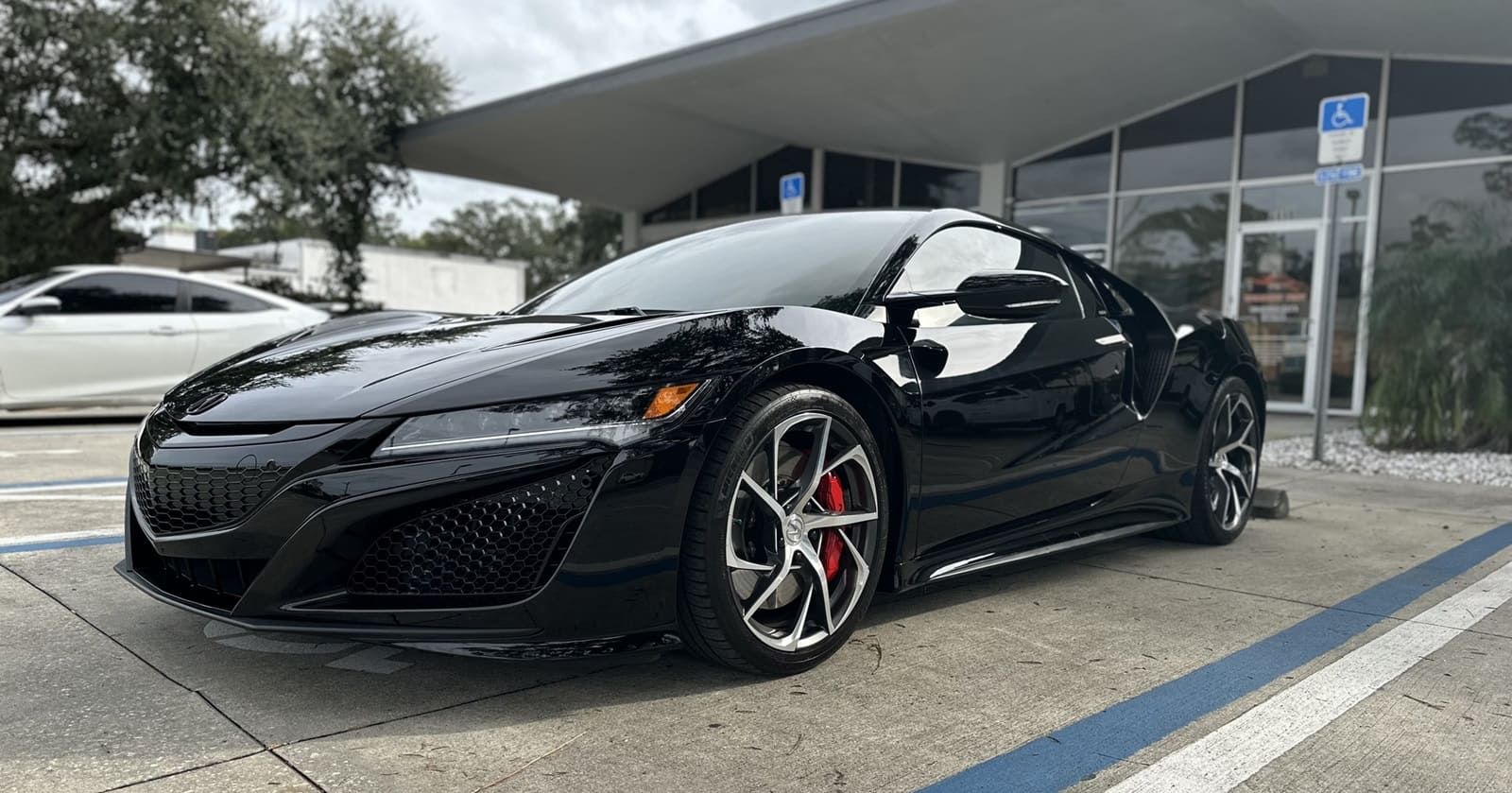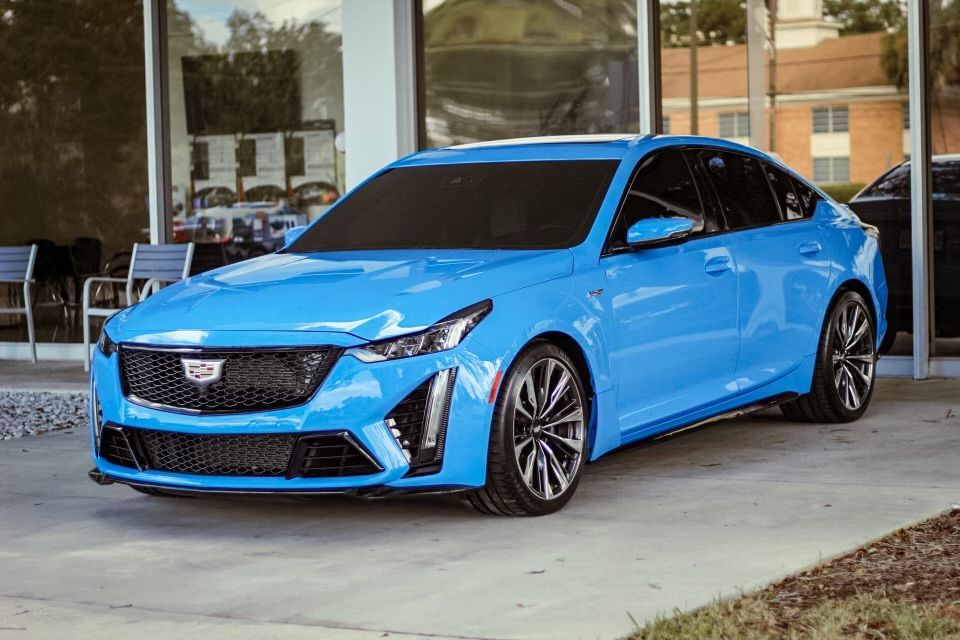Georgia Window Tinting Laws
Car window tinting laws in Georgia were enacted in 2005.
We have provided all the necessary information about your car’s window tint, including how dark or reflective the tint is allowed in your state.
There are also additional car window tinting rules and regulations in Georgia so make sure you read all about it below.
Window tint darkness in Georgia
The percent of visible light allowed through your car windows is called VLT: Visible Light Transmission.
The percentage of light allowed through your film and glass in Georgia is very specific and different for sedan cars and SUV cars or vans.
Tint darkness for sedans:
- Windshield: Non-reflective tint is allowed on the top 6 inches of the windshield.
- Front Side windows: Must allow more than 32% of light in.
- Back Side windows: Must allow more than 32% of light in.
- Rear Window: Must allow more than 32% of light in.
Tint darkness for SUV and vans:
- Windshield: Non-reflective tint is allowed on the top 6 inches of the windshield.
- Front Side windows: Must allow more than 32% of light in.
- Back Side windows: Any darkness can be used.
- Rear Window: Any darkness can be used.
Window tint reflection in Georgia
Window tint can reflect incoming light and reduce glare and heat.
Georgia window tint law permits a certain window reflection when using a tint so make sure you pay attention to this as well.
Tint reflection for sedans:
- Front Side windows: Must not be more than 20% reflective.
- Back Side windows: Must not be more than 20% reflective.
Tint reflection for SUV and vans:
- Front Side windows: Must not be more than 20% reflective.
- Back Side windows: Must not be more than 20% reflective.
Other Georgia window tint rules and regulations:
Georgia does have several other important laws, rules and regulations pertaining to window tinting. They include the following:
- Side Mirrors: No restrictions.
- Restricted Colors: The tint colors of RED and AMBER are not legal by state law.
- Tint Variance: State laws allow 3% light transmission tolerance.
- Certificates: Manufacturers of film need to certify the film they sell in the state. Make sure your dealer is using certified film.
- Stickers: The sticker to identify legal tinting is no longer required.
- Medical Exceptions: Georgia allows medical exemptions for special tint.
- Penalties: Misdemeanor punishable by a fine up to $1,000 and up to 12 months imprisonment.
Keep in mind that Georgia tinting laws and regulations may be interpreted differently in your county or place of residence.
We always recommend double-checking our information with your local DMV or law enforcement authorities.
Our information about window tint laws in Georgia was last updated in 2024.
Tinting laws in Georgia were enacted in 2005.
In case any of our info provided is not up to date or correct be sure to contact us so we can fix it. Thanks!
Trusted industry leader in providing accurate window tint laws. Share with confidence:
What is the darkest legal tint in Georgia?
In Georgia, the darkest legal tint allowed for vehicles is regulated to ensure both driver visibility and road safety. For the front side windows, the law permits a window tint with a minimum of 32% visible light transmission (VLT), meaning that 32% of light must be able to pass through the window. The rear side windows and the back windshield also have the same restriction of 32% VLT, providing a consistent standard across the vehicle while offering privacy and protection from the sun's harmful rays. The windshield in Georgia can only have a non-reflective tint on the top six inches. These regulations are put in place to ensure that drivers maintain adequate visibility while benefiting from the advantages of tinted windows. Compliance with these tint laws helps avoid fines and promotes safer driving conditions.
Benefits of Legal Window Tinting in Georgia
Legal window tinting in Georgia offers numerous benefits while ensuring compliance with state regulations. One of the primary advantages is enhanced comfort, as tinting reduces the interior temperature of the vehicle by blocking out a significant portion of the sun's heat. This is particularly beneficial during Georgia's hot summers. Additionally, window tinting protects the vehicle's interior from harmful UV rays, preventing upholstery from fading and cracking over time. It also provides increased privacy and security, making it harder for potential thieves to see inside the vehicle. Furthermore, legal window tinting reduces glare from the sun and headlights, which enhances driving comfort and safety. By adhering to Georgia's tint laws, vehicle owners can enjoy these benefits without risking fines or penalties.
Consequences of Illegal Tint
Going beyond the legal limits can lead to fines, inspection issues, and reduced visibility, so it's best to stay compliant.
Conclusion
In Georgia, adhering to the legal window tint limits ensures both your safety and compliance with the law. By staying within the regulations, you can enjoy the advantages of window tint while avoiding fines and potential road hazards. So, when considering window tint for your vehicle, remember to keep it legal and make the road a safer place for everyone.







